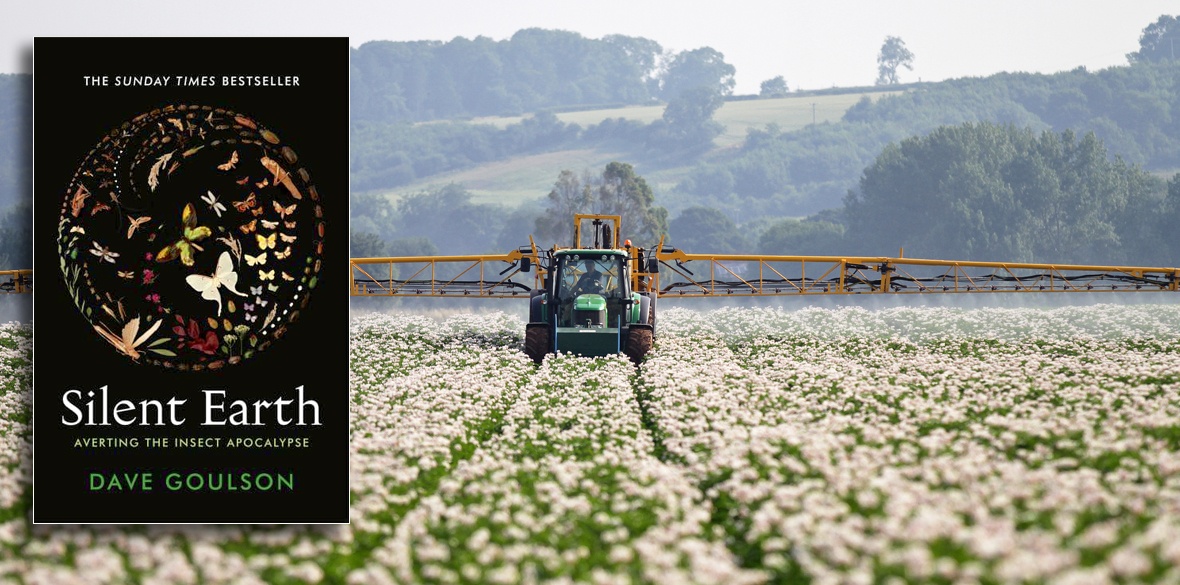This is the last article you can read this month
You can read more article this month
You can read more articles this month
Sorry your limit is up for this month
Reset on:
Please help support the Morning Star by subscribing here
Silent Earth
by Dave Goulson
Jonathan Cape, £8.79
RACHEL CARSON’S 1962 book Silent Spring alerted us to the dangers of the irresponsible use of pesticides and weedkillers.
Tragically that warning was ignored. Now we have another, more insistent wake-up call in Dave Goulson’s book. It should be obligatory reading for politicians and those in power.
The author paints an alarming picture of the state of our planet, taking the example of the insect world. He demonstrates that a cataclysmic and ongoing collapse of insect numbers is happening before our very eyes.
Some may argue that a few less mosquitoes or creepy-crawlies can hardly be considered a loss, but that would be to miss the point.
Insects are the most successful branch of animal life on our planet, they are ubiquitous, found in the air, water, soil, countryside and in our homes and gardens. Most importantly, they form the basis of all life.
Insects are the vital link in the complex food chain upon which whole life cycles depend. Without insects, there will be no pollination, so not only will plants species disappear but also the food those plants produce; freshwater fish will disappear without insects; the soil as fertile substrate for food production will become a desert.
A long-time study in Germany reveals that flying insect biomass (ie quantity of insect life) in nature reserves during 1989-2014 declined by 76 per cent.
Similar frightening losses can be registered elsewhere. A decline of this magnitude in such a short period of time is unsustainable. So why are these insects dying?
The main reason is over-use of pesticides, weedkillers and artificial fertilisers. Weedkillers eradicate plants — wildflowers and grasses — that insects feed on, pesticides kill the insects themselves and over use of fertilisers has harmful effects on insect metabolism.
All this comes on top of the continued destruction of varied habitats for industrial agriculture or urban development.
The big agrochemical manufacturers deny that their products cause any ill effects and even go so far as to falsify their own research, pressurise those scientists like Goulson who expose the dangers and cynically sell their products to the developing world even when they are banned elsewhere.
We are, according to Goulson, on the very brink of a planetary catastrophe unless radical action on food production and the use of artificial chemicals to produce short-term and unsustainable yields is not taken.
His book is compelling. He draws up his case in a very readable and accessible style, with numerous facts and statistics.
Goulson isn’t, however, satisfied with painting an apocalyptic picture, but concludes his book with a plenitude of excellent practical suggestions as to what all of us can do.
If Silent Earth contains a single unequivocal message, it is that nature — insects, flowers, plants, birds and mammals, including our own species — is a single system. It is an essential and timely book.











